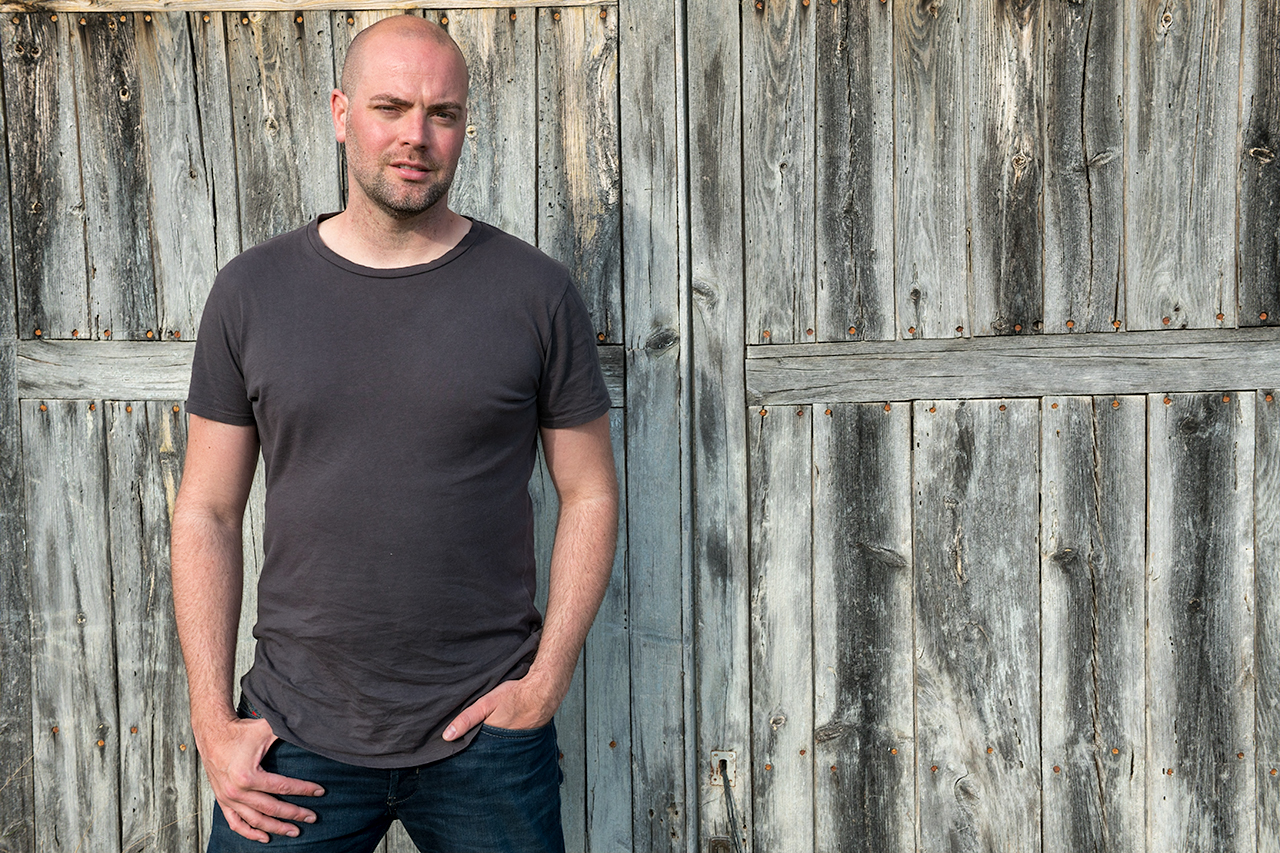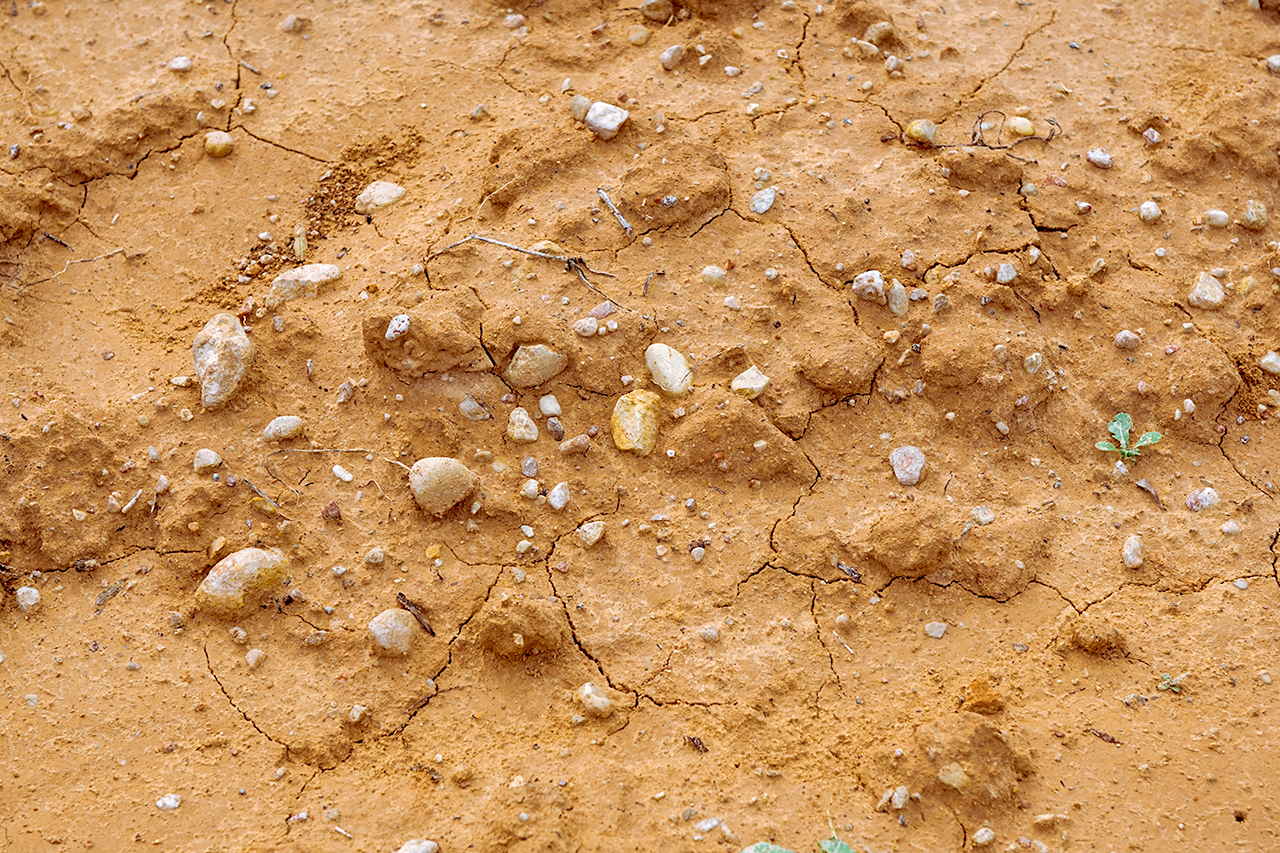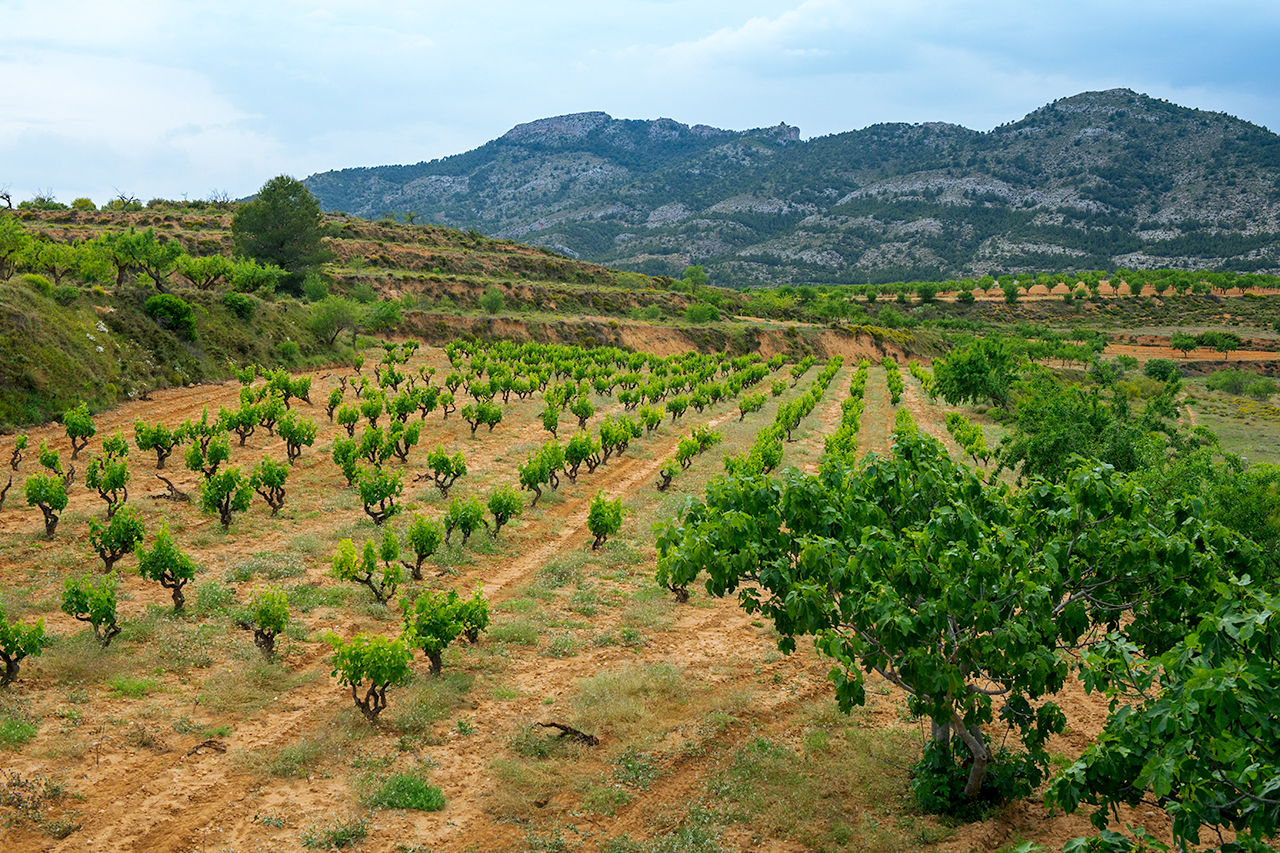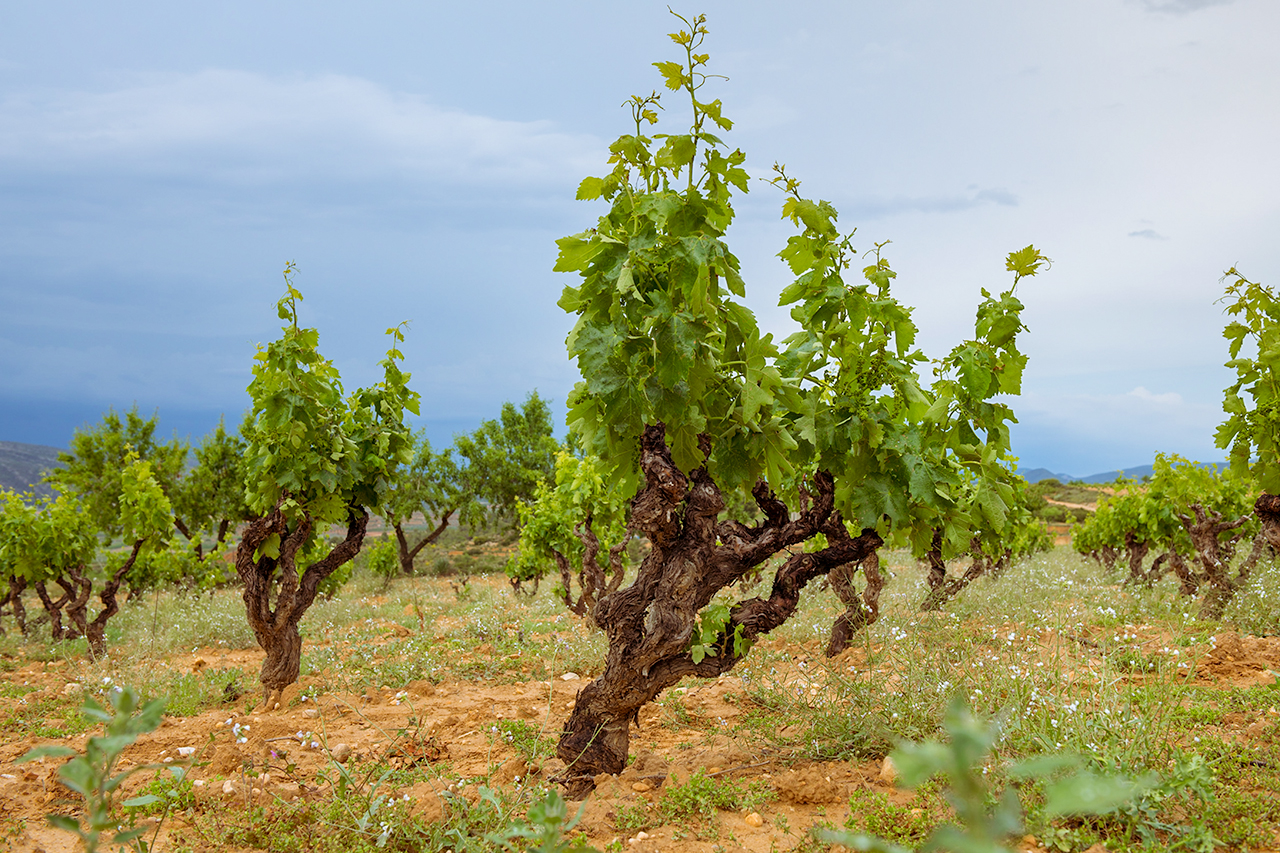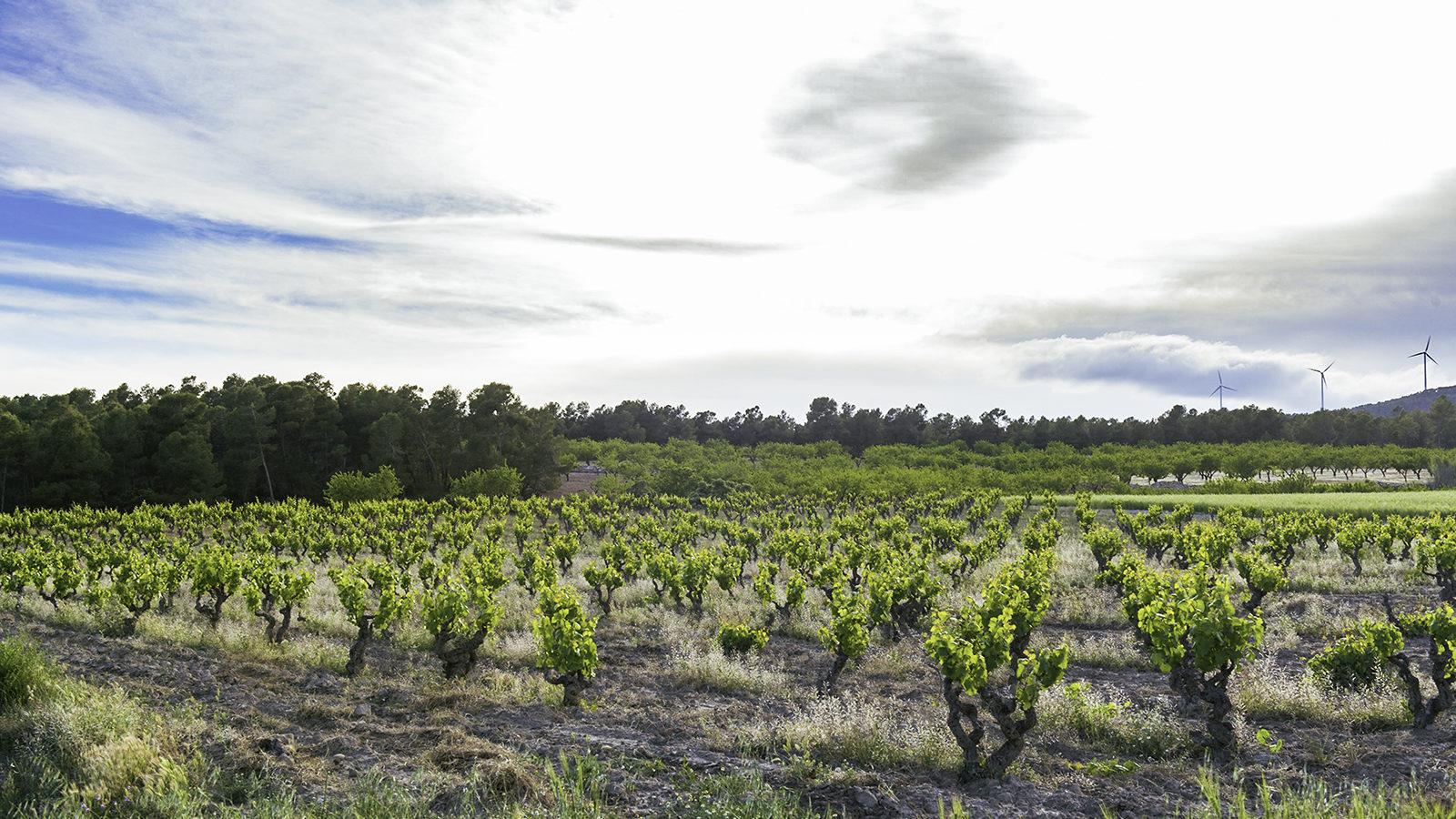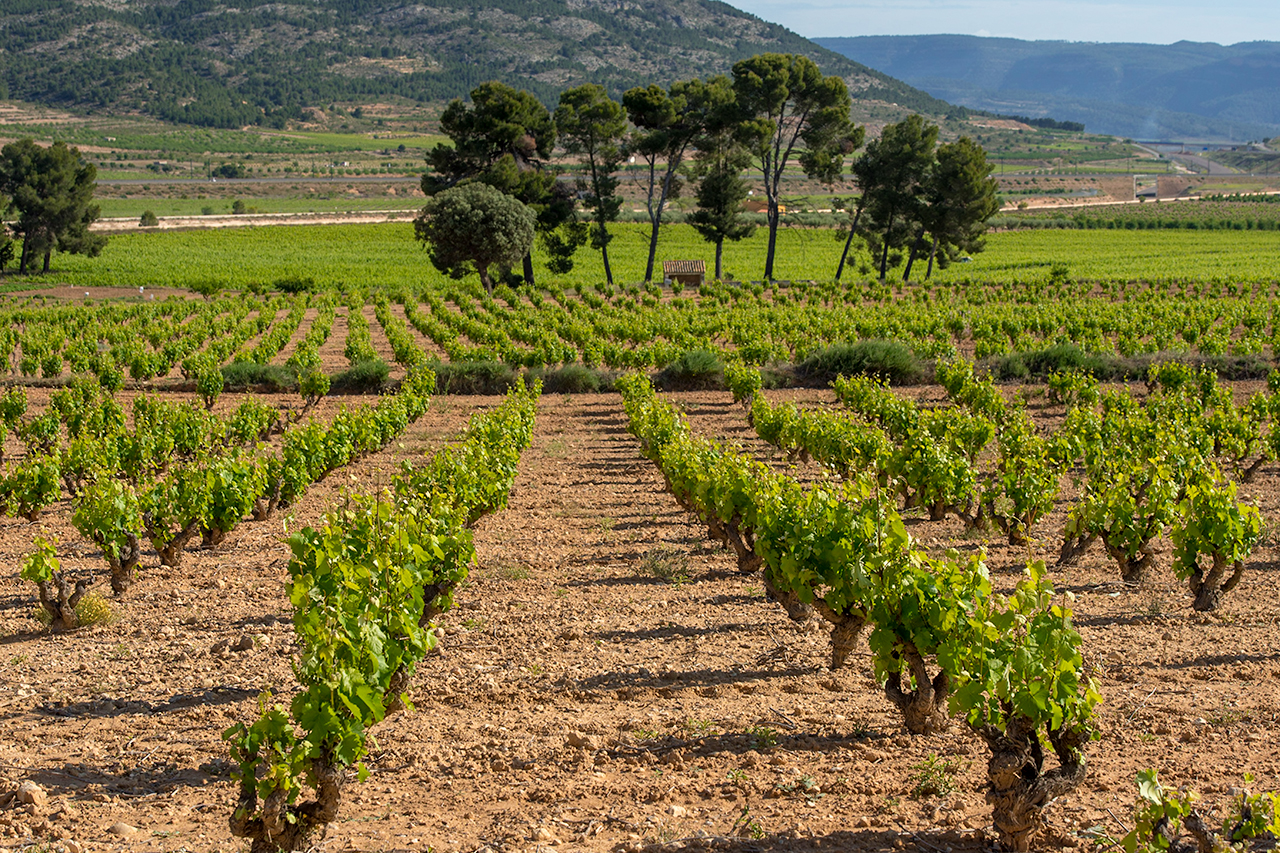

Javi Revert was born and raised near La Font de la Figuera at the western edge of Valencia. Both of […]
Keep ReadingJavi Revert was born and raised near La Font de la Figuera at the western edge of Valencia. Both of his grandfathers were viticultors and winemakers until joining the local cooperative when it was founded in 1971. Being raised by grape growers, Javi chose to pursue a degree in viticulture at the Universidad Politécnica in Valencia. Before graduation, he started working with Pablo Calatayud at the pioneering Celler del Roure. While Pablo has already been a champion for indigenous grape varieties with his efforts in reviving Mandó, together with Javi, they began recovering and experimenting with additional heirloom varieties.
But the ancient tradition of winemaking wasn’t solely about the vineyards. The Valle de los Alhorines, which encompasses parts of Albacete, Alicante, and southwestern Valencia had been settled for millennia. Its unique climate was ideally suited for cultivating fruit, olives, and cereal grains – the wealth of which is attested by the presence of Celto-Iberian, Roman, and Moorish ruins and archeological sites. Of the many artifacts recovered throughout this region, some of the most prevalant are testament to the importance of ancient winemaking in the form of locally made amphorae.
For most, this would be an interesting historical footnote, but Pablo’s modern cellar was built upon an ancient agricultural estate with a 17th-century, subterranean cellar with over forty intact amphorae for aging wine and already dedicated to a sense of place with the pursuit of indigenous grape varieties, why not apply the same to winemaking? From this insight, Javi and Pablo created Vins Antics – a range of wines from indigenous varieties, fermented by native yeasts and aged in amphorae. These wines would garner acclaim as another benchmark in the redefinition of modern winemaking in Spain, leading to Javi meeting, befriending, traveling, and tasting widely with Dani and Fer of Comando G and José María Vicente of Casa Castillo.
While visiting his grandfather in 2014, Javi mentioned his work in recovering old vines of indigenous varieties for Celler del Roure. His grandfather mentioned that just such a vineyard existed near the village – one Javi’s great-grandfather had planted in 1948. Named Pla del Micalet, this north-facing, terraced site is surrounded by forest and scrubland at an elevation of 710-730m with poor sandy and chalky soils, resembling the albariza of Jerez. Established long before the craze for foreign varieties or productive clones destroyed much of the viticultural heritage of the DO, this site was planted with indigenous white varieties all suited to the warm, dry Mediterranean climate of the region. Among them were Tortosí, Trepadell, Malvasía, Merseguera, and Verdil.
Javi’s recovery of Pla del Micalet inspired the creation of his own project, an estate focused solely on vineyards around his hometown, featuring heritage varieties and wines made with minimal intervention. Now totaling 12 hectares, Javi has assembled a collection of north-facing sites on sandy, chalky soils. Sharing the same hillside as Pla del Micalet, Javi’s vineyards include old vines planted in the early 1970s and younger vines of Garnacha he has been planting since 2015. Exposed to the wind, sheltered from the heat of the day, and quickly cooling at night, Javi can harvest up to a month after his neighbors only a few kilometers away on the valley floor, yet his wines are lower in alcohol and higher in acidity. Farming is strictly organic but not currently certified. His vineyard work is manual, including harvest. Fermentations are with indigenous yeasts and entirely in neutral vessels – seasoned French oak, demi-johns, or amphorae. The reds have varying amounts of whole clusters depending on the vintage and variety.
Micalet, Simeta, and Foradà are single-vineyard wines, while Sensal represents his village wine. He makes experimental cuvées to better understand all the facets of each variety and parcel. Javi’s restlessness in discovering and capturing the potential of a long-neglected corner of Spain is why we are excited to represent him.
Close
Micalet - the vineyard that Javi's grandfather planted in 1948
The sandy and chalky soils of Micalet - ideal for Mediterranean white varieties such as Tortosí, Trepadell, Malvasía, Merseguera and Verdil
El Cabezo
El Cabezo
Capucho Terrazas
Sensal
Sensal
Viña Bonicaire
50 year old vines of Arcos
Young vines in Terrazas
